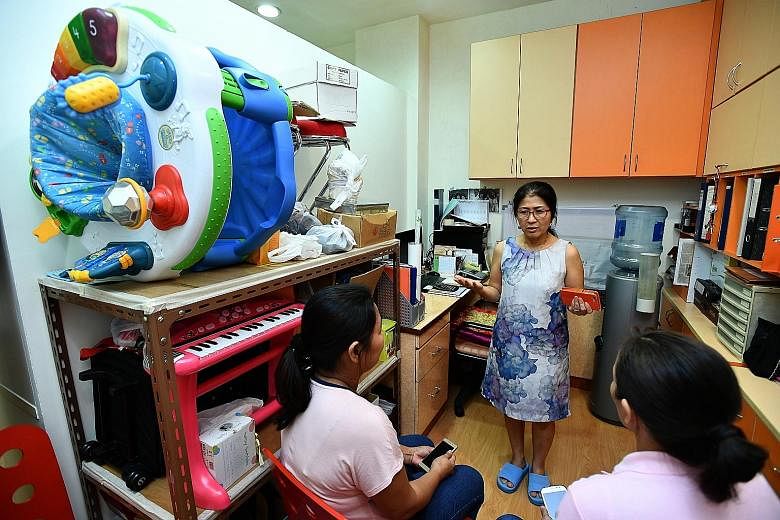Maid employers and agencies said they will make a stronger effort to educate maids here about the use of social media and the dangers of using it to access radical ideologies.
This comes after the Home Affairs Ministry said on Sunday that five maids were found to have been radicalised through social media in the past two years while working here.
"It is common for many maids to own smartphones now. They use them to go on Facebook to chat with their friends or post pictures, but phones can also lead to abuses," said Ms Monica Leong, who runs Faith Employment Agency.
About two weeks ago, Indonesian anti-terror police arrested four women on suspicion of terrorism, including Dian Yulia Novi, 27. She had worked as a maid abroad, including in Singapore between 2008 and 2009, and was first exposed to radical teachings via Facebook.
Ms Leong said: "I used to touch briefly on phone usage during training. But I will take more time now to warn them of how social media can be dangerous, as there could be extreme ideas spreading online."
Orange Employment Agency owner Shirley Ng said: "We will advise the maids that in Singapore, we have various religions that we practise in moderate forms."
But she noted that while agencies make general background checks on maids, including their religious beliefs, they are not trained to detect those with extreme affiliations.
The Foreign Domestic Worker Association for Social Support and Training (Fast) has highlighted the urgent need for a national education programme to prepare employers and employment agencies for situations in which they suspect a maid of being radicalised. It plans to address this in its orientation programme for newly arrived maids.
While noting that cases of maids being radicalised remain isolated, employers here said having more open and regular talks with their maids could help expose any unusual changes in their behaviour.
Clamping down on maids' activities in their free time could backfire and "trust is more important", said one employer, Ms Eileen Tjandra, 46, who is self-employed.
Some, such as operations director Audrey Tan, 46, discuss news with their maids so they are more aware.
Her Indonesian maid of two years, Ms Emah Muklis, 33, has added her employer as a Facebook friend. She said: "I know what (Dian) did is not normal. I use Facebook for fun, and I have nothing (to hide)."
Working abroad can be lonely, and maids find solace in different spaces, said Ms Sheena Kanwar, executive director of the Humanitarian Organisation for Migration Economics.
She noted: "Instead of going online, they can attend courses where people from different countries and backgrounds are welcome. It allows them to find support there."


